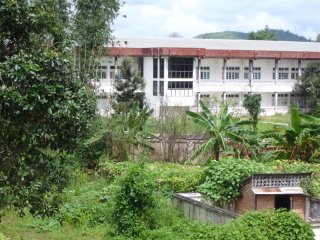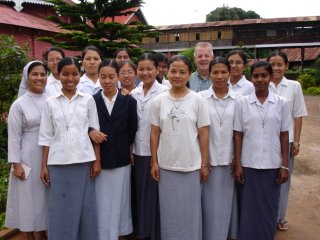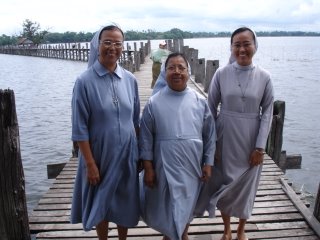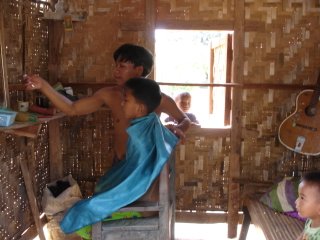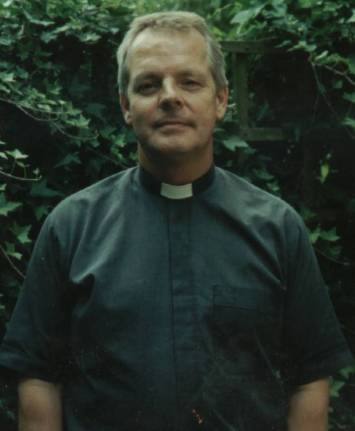May'myo and its surounds
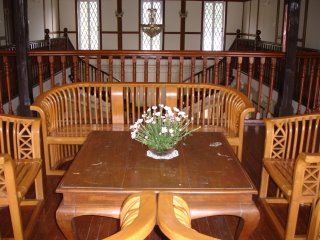
The Landing at Candycraig Mansion

Visiting Kandawgyi Gardens
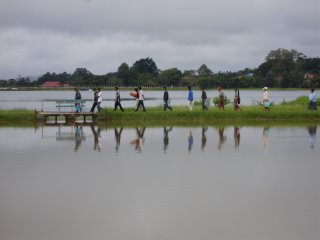
Locals visiting Kandawgyi Free
After lunch at the convent which was served by the girls we went on a tour of the town. Nice little town busy in the centre with lots of bikes and noise. There were quite a few beggars who were very young indeed. One was carrying a little child which turned out to be her sister. On the outskirts of the town the well to do lived, but there was a lot of signs that they were becoming run down as their money got less and less. Sister Rita took us to Candycraig which is an old colonial house that had seen better days. This is the place where the old governor of Mandalay stayed during the hot summer days. The hall and the big wooden staircase were very impressive, as were the large bedrooms at the front of the house. Though the whole house was clean and tidy there was something missing. It suddenly stuck me as I was walking up the stairs what was wrong. There was no paintings of any kind on the walls. In large period houses like Candycraig you always have pictures on the walls. I wondered if the government had sold them off. The whole house needed a lick of paint. The painting on the windows frames were all beginning to peel and there were cracks in the walls. Peter was the manager who was a lovely man and couldn’t help us enough. From him I found out that Candycraig was owned by the government now, then I understood why the place seemed under-funded and in need of repair.
At the moment the military dictatorship is in the process of building a new capital city called Nay’Pyi’Daw. All the money that the generals don’t squander on themselves of filch from the public coffers goes to build this white elephant. It is in the middle of nowhere. Nobody wants to move there even the foreign embassies or their consulates. All government departments and their workers have to go there as well. Yangon is going to be abandon by the military hierarchy so that they do not have to see the complete mess they have made of it. It’s the same with Mandalay they are abandoning that city to the Chinese who are pouring in. A few years ago the Burmese Army repelled an invasion by the Chinese in the north of the country now this ‘government’ is letting them in by stealth. I feel so sorry for the Burmese people as they see their country in a monetary sense being overtaken by a foreign power. And what is worse is that there own people who are selling them short. I am sure if there was oil in this country the western governments would be in there sorting it out. Mind you would you want them in making another mess.
Anyway back to May’myo After Candycraig we went off to Kandawgyi Gardens. Nice little garden but no different than you see all around the world the difference here being foreigners have to pay $3 and another dollar if you want to take photos. After this we went to see the waterfalls, which is a holy place for the Buddhists. Lots of stalls all selling the same things. They were gearing up for the next day when an influx of people were expected as it was the festival of lights. The centre of the town was your usual Myanmar mix. Noisy, smell of petrol and the honking of horns, little children begging and the men drinking tea and talking while the women got on with the work. After haggling to get home sister Geraldine and myself said our goodbyes to sister Rita and settled in a car taxi with three in the back and three in the boot. Finally after an hour and a half arrived back at the convent. Had our evening meal a small chat and off to bed to start again tomorrow.
